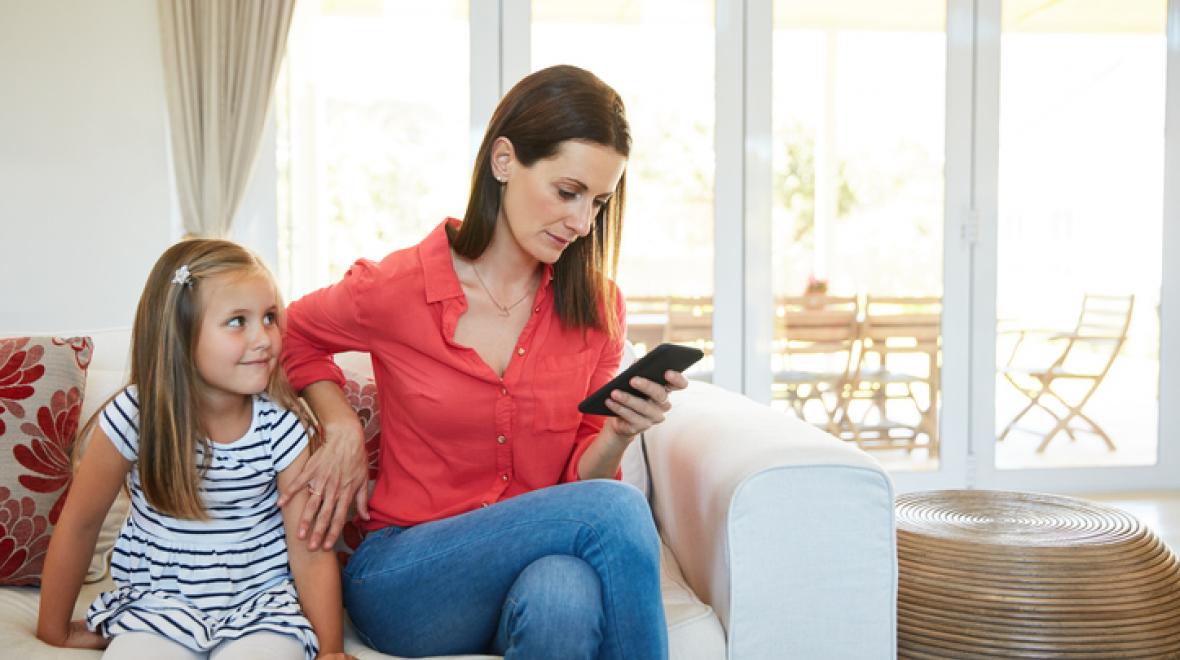More than screen-obsessed young children, we should be concerned about tuned-out parents.
Parents now have more face time with their children than did almost any parents in history. Despite a dramatic increase in the percentage of women in the workforce, mothers today astoundingly spend more time caring for their children than mothers did in the 1960s.
But the engagement between parent and child is increasingly low-quality, even ersatz. Parents are constantly present in their children’s lives physically, but they are less emotionally attuned.
The new parental-interaction style can interrupt an ancient emotional cueing system, whose hallmark is responsive communication, the basis of most human learning. We’re in uncharted territory.
Child-development experts have different names for the dyadic signaling system between adult and child, which builds the basic architecture of the brain. Jack P. Shonkoff, a pediatrician and the director of Harvard’s Center on the Developing Child, calls it the “serve and return” style of communication; the psychologists Kathy Hirsh-Pasek and Roberta Michnick Golinkoff describe a “conversational duet.”
The vocal patterns parents everywhere tend to adopt during exchanges with infants and toddlers are marked by a higher-pitched tone, simplified grammar, and engaged, exaggerated enthusiasm.
Though this talk is cloying to adult observers, babies can’t get enough of it. Not only that: One study showed that infants exposed to this interactive, emotionally responsive speech style at 11 months and 14 months knew twice as many words at age 2 as ones who weren’t exposed to it.
In the early 2010s, researchers in Boston surreptitiously observed 55 caregivers eating with one or more children in fast-food restaurants. Forty of the adults were absorbed with their phones to varying degrees, some almost entirely ignoring the children (the researchers found that typing and swiping were bigger culprits in this regard than taking a call). Unsurprisingly, many of the children began to make bids for attention, which were frequently ignored.
A follow-up study brought 225 mothers and their approximately 6-year-old children into a familiar setting and videotaped their interactions as each parent and child were given foods to try. During the observation period, a quarter of the mothers spontaneously used their phone, and those who did initiated substantially fewer verbal and nonverbal interactions with their child.
Under the circumstances, it’s easier to focus our anxieties on our children’s screen time than to pack up our own devices. Psychologically speaking, this is a classic case of projection—the defensive displacement of one’s failings onto relatively blameless others. Where screen time is concerned, most of us need to do a lot less projecting.
If we can get a grip on our “technoference,” as some psychologists have called it, we are likely to find that we can do much more for our children simply by doing less—regardless of the quality of their schooling and quite apart from the number of hours we devote to them. Parents should give themselves permission to back off from the suffocating pressure to be all things to all people.
Put your kid in a playpen, already! Ditch that soccer-game appearance if you feel like it. Your kid will be fine. But when you are with your child, put down your damned phone.
(Source: The Atlantic via Center of the Developing Child – Harvard University)
Note: Content may be edited for style and length.
If you are not in my Conscious Parent Accelerator Program yet, it will be very hard to change your default reactivity on your own: Here’s what one parent said about the program:
Hi Mihaela,
I just wanted to say I’m very happy I’m taking this course now. I’m learning a lot of things I didn’t know. Although I was expecting to go straight into our children, I find that the introspection you prompted at the beginning was absolutely necessary. I’m actually surprised that after years of therapy and self improvement I still find all these emotions and unresolved conflicts in me. Somehow, the fact that it’s a course and not therapy makes me wonder if now I’ll finally be able to close those chapters in my life that are still clearly open. I can see that the tools you are giving me are for life. I also like the small group discussions; I find there’s a lot to gain when others put into words things I may be struggling to describe, or that I thought I had overcome but someone expresses it more clearly now and I can see it under new light.
I can’t wait for the rest of the course!
